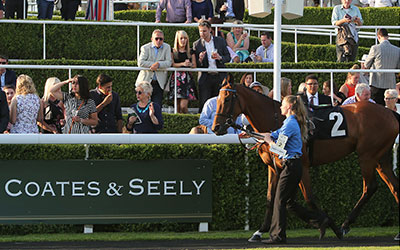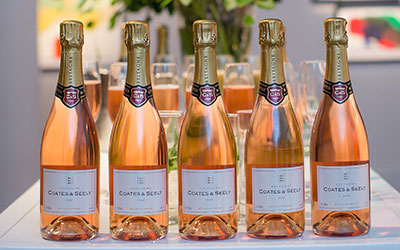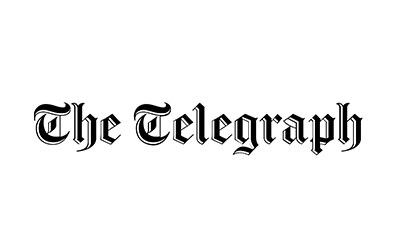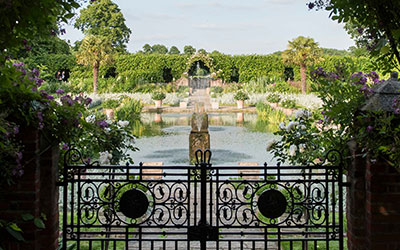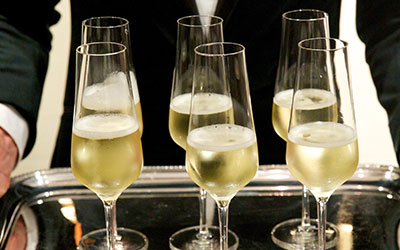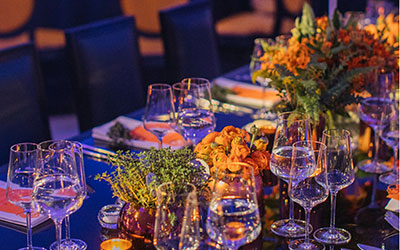The Telegraph Online: Victoria Moore, Wine correspondent
At a party at the Ritz Hotel this week, the English wine producer Nyetimber introduced a brace of new sparkling wines. It’s fair to say that any discussion of the wines was rapidly overshadowed by talk of the ambitious pricing strategy. At £150 for the sparkling white from the 2009 vintage and £175 for the sparkling rosé from 2010, the pair immediately became, and by some margin, the most expensive English wines ever released.
In economic terms, the pricing sets the two new Nyetimber 1086 wines above some of the most fêted names from Champagne, such as Krug Grande Cuvée (around £135); Dom Pérignon 2009 (£140); and Philipponnat Clos des Goisses 2007 (around £136).
Are they in any way worth it? Perhaps before we get on to that it’s worth a quick detour to consider how far Nyetimber has come in a short space of time.
The estate was bought 31 years ago by an American couple from Chicago called Stuart and Sandy Moss. It included a run-down manor house that once belonged to Anne of Cleves, the fourth wife of Henry VIII. It did not include chardonnay, pinot noir, and pinot meunier vines – the received wisdom of the day was that attempting to grow these champagne varieties in England was madness. In 1988, Stuart and Sandy planted them anyway. They made good wine. Nyetimber found itself at the forefront of a revolution. Ownership passed from the Mosses to songwriter Andy Hill (most famous for his work with Bucks Fizz) and in 2006 it was bought by Eric Heerema, a Dutchman who set about building the brand with purpose and determination.
“One of the things we really bonded over when we first spoke was Eric’s drive for quality. He talked about the unfulfilled potential in England,” says Brad Greatrix, one half of the winemaking couple that Heerema hired in 2007. Perhaps it tells you something about the speed at which Heerema likes to operate that three weeks after his first speculative contact with Greatrix, and his wife Cherie Spriggs, the couple had uprooted themselves from Canada, and were already settling in to their first day at work.
In the last decade, English wine has moved forward extremely rapidly. We have more vineyards; the wines have improved; the reputation of the wines has grown. As this has been happening there has also been something of an arms race to produce the country’s most expensive wine.
Did Nyetimber start it? Perhaps it did. Nyetimber Tillington Single Vineyard 2009 was released in 2013 at £75 – significantly more than its closest English competitor. Everyone gasped and muttered about ambitious pricing, then everyone tasted it, and agreed that to their surprise it was extremely good – even, perhaps, worth spending £75 on. Before long, other entrants into the market – such as the Coates & Seely La Perfide Blanc de Blancs 2009 (current price: £65) – meant that the Tillington Single Vineyard no longer stood apart from the rest of the English crowd. In spring 2017 the Kent-based producer Chapel Down launched a sparkling wine called Kit’s Coty Coeur de Cuvée 2013. At £100 a bottle, it became England’s new most expensive wine.
When it came to the new Nyetimber 1086 wines – the name is a reference to the Domesday Book in which Nyetimber is mentioned – my main thought was not, “How much will they be?” But, “How much more than £100 will they be?” I reckoned the Nyetimber wines would not come out for less than £120. I was right, but not right enough. Like a player in an auction who ups his bid by a punchy chunk to discourage others from following him, Heerema (who apparently set the prices with his sales manager) went even higher.
I can’t tell you to go out and buy the wines at this price (though if you do want to, the white is more impressive than the red). This is no reflection on the skill of winemaker Cherie Spriggs who, using the best grapes from two vintages (2009 for the white and 2010 for the rosé) has made two rather good wines.
It’s just that, firstly, I’m not sure they are Nyetimber’s best wines. They are not especially rare (there are 2,600 bottles and almost 40 magnums of the white and 12,000 bottles and 850 magnums of the pink). Perhaps most importantly, English wine has not – yet – reached the level at which such prices are remotely appropriate within the existing hierarchy. Tasting these two new cuvées provided no order-shattering moment of revelation, at least not for me, or for anyone else I have spoken to. For instance, Krug Grande Cuvée is, quite simply, a better wine, and one with a bigger reputation.
But as an effect of the pricing something else interesting has happened. Just as the release of the first £75 Tillington Single Vineyard five years ago made Nyetimber’s Classic Cuvée feel better value, so the mere existence of a £150 and £175 duo at the top of the pyramid increases the appeal of the Tillington Vineyard .
This is called a framing effect. It’s a classic piece of selling psychology that makes you feel that by choosing the Tillington you’re saving £95 rather than spending £80 (the current price listed on the Harrods website for the excellent 2010). I notice people already looking at the Tillington with renewed interest. And I can’t help thinking that this must have been part of Heerema’s strategy. So if you do want to try a luxurious English wine – can I suggest you go and look for the Nyetimber Tillington Single Vineyard 2010 (Harrods, £80) – it’s a very fine expression of a single English site in Sussex, and a wine that contains a splinter of magic.
